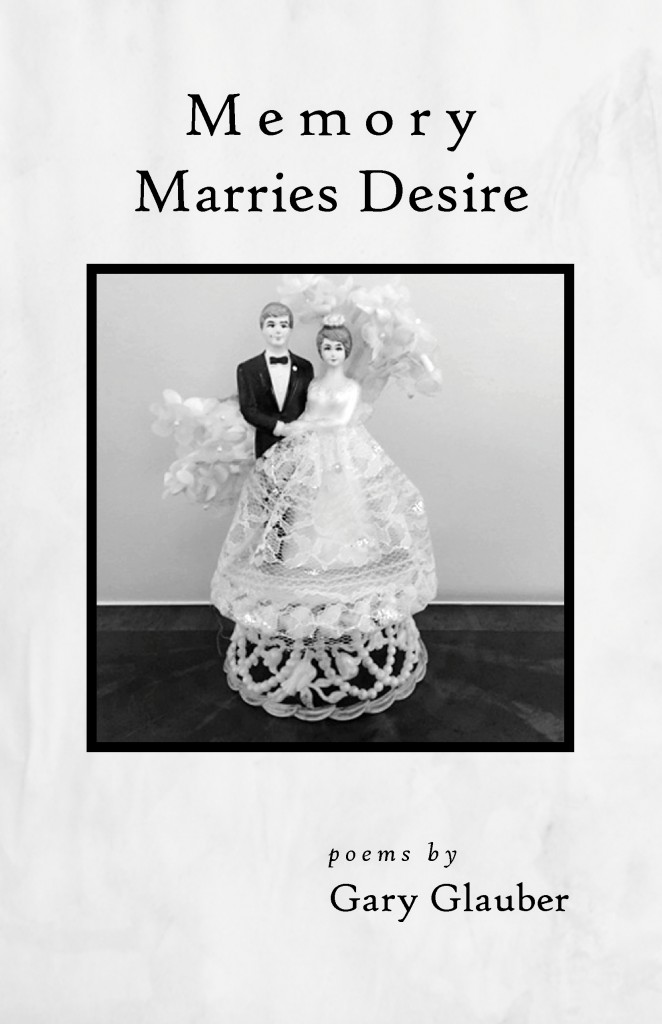In the film Dead Poets Society, Mr. Keating, played by Robin Williams says, “We don’t read and write poetry because it’s cute. We read and write poetry because we are members of the human race. And the human race is filled with passion.” I thought of this quote often as I read Gary Glauber’s SMALL CONSOLATIONS, an exquisite collection of poetry that captures so much of what it means to be a human being. I have had the pleasure of knowing Gary for a number of years now, and I am thrilled to welcome him to Not Even Joking today!
 Gary Glauber is a poet, fiction writer, and teacher. To celebrate National Poetry Month, he has twice taken part in found poetry challenges issued from Found Poetry Review (PoMoSco and Pulitzer Remix), creating a poem for each day in April according to prescribed prompts or directions. He is widely published in venues both online and in print, and has received Pushcart and Best of the Net prize nominations. He champions the underdog and often composes to an obscure power pop soundtrack. His first collection, SMALL CONSOLATIONS (Aldrich Press) is now available on Amazon.com. A chapbook, MEMORY MARRIES DESIRE, will be available from Finishing Line Press in March 2016.
Gary Glauber is a poet, fiction writer, and teacher. To celebrate National Poetry Month, he has twice taken part in found poetry challenges issued from Found Poetry Review (PoMoSco and Pulitzer Remix), creating a poem for each day in April according to prescribed prompts or directions. He is widely published in venues both online and in print, and has received Pushcart and Best of the Net prize nominations. He champions the underdog and often composes to an obscure power pop soundtrack. His first collection, SMALL CONSOLATIONS (Aldrich Press) is now available on Amazon.com. A chapbook, MEMORY MARRIES DESIRE, will be available from Finishing Line Press in March 2016.
Your poetry captures the details, desires and longings of life. Could you walk us through the process of writing one of your poems starting with that spark of inspiration?
Good writing always begins with storytelling. My best narrative poetry comes from some seed of an idea that tells a story: it can be a specific character’s voice, an incident or event, a phrase or piece of dialogue. I used to focus on short fiction and my transition to poetry reflects that still. Like a good actor, you inhabit that voice or situation, find the emotional truths inherent to it, and try your best to capture it within the strictures of the written word. With luck, patience, and revision, the process sometimes works. While the initial poems tend to come quickly, they evolve slowly over time, often accruing a trail of rejections and revisions along the way. Trust the inspiration and the vision – the world often takes time to hear and understand the sounds of a new voice.
How did SMALL CONSOLATIONS come about?
For several years, I had been writing and publishing short stories. My transition to poetry coincided with my return to teaching. I had less time to focus on longer works, and more exposure to a wide assortment of wonderful classical and contemporary poems that I could share inside the classroom. I began to challenge myself to tell stories through the medium of poetry, and began to develop a number that I felt were strong enough to submit to literary magazines. After many attempts, in December 2010, I had my first real poetry acceptance (for a sestina, actually). Over the next few years, I had more and more poems accepted and published (the current count is slightly under 200). I put together a full-length collection and started submitting to publishers and contests by early 2011. That collection eventually became SMALL CONSOLATIONS, although I tinkered with what poems were included, and in what order. After many rejections and honed iterations, the collection finally found a home with Karen Kelsay of Aldrich Press in summer 2014. Ms. Kelsay is a talented writer who takes care in nurturing other writers’ work, bringing to the public a number of high quality collections. Bringing the book to publication was a smooth collaboration, and in July 2015, it was made available to the public.
MEMORY MARRIES DESIRE is due out in March. What can we expect from this chapbook?
This chapbook is like a surprise gift, in a way. While the full-length collection has many of my older poems, this chapbook is comprised of newer works, and some that did not seem to fit into other collections. Some of those poems were inspired in part by Annie Dillard’s creative non-fiction collection, Pilgrim at Tinker Creek, a text that students begrudgingly respect and outwardly loathe. Dillard’s younger self’s questioning foray into nature is poetic, erudite, eclectic, and impressive, but students bemoan its lack of plot or action. I found inspiration both from Dillard’s journey, and the ongoing challenge of teaching it to a generation of resistant students. Several of these other chapbook poems are emotional or nostalgic, confronting ghosts and lovers, blurring the lines of reality and fantasy on the way toward the angst and/or humor of a new realization. What you can expect is the ongoing evolution of the thinker as poet.
What else gets you up in the morning? What are you passionate about? And how does this influence your creative life? (or does it?)
I have an unending passion for the written word and music. My days are always a unique soundtrack of poetry, stories, fiction, articles, lyrics, and songs. I am also passionate about sharing my love of these things with others – hence the teaching career. It all influences my creative life in ways that can be subtle or obvious – but each day’s experiences contribute to the whole. As one gets to a certain age, one learns to let go of regrets and focus on gratitude instead. While the rejections still sting at times, there is a willing surrender to the process. With hard work comes eventual reward, and a readership that connects with one’s creations.
You are also a teacher. What advice would you give to a young person who thinks they’d like to be a published poet?
Read as much as you can. Be inspired by others. Imitate styles en route to finding what works best for you. Start to submit. Revise often. Try not to let rejection discourage you. Keep writing. It’s often a hard, lonely task. But real writers know it is what they have to do, regardless. Change the world one word at a time.
Thank you so much for sharing today, Gary. I have really enjoyed reading the poems in SMALL CONSOLATIONS. I find that so many of them show what it means to be human. And I am looking forward to getting my copy of MEMORY MARRIES DESIRE in March.
You can find SMALL CONSOLATIONS on Amazon, and MEMORY MARRIES DESIRE is currently available for pre-order from Finishing Line Press.







